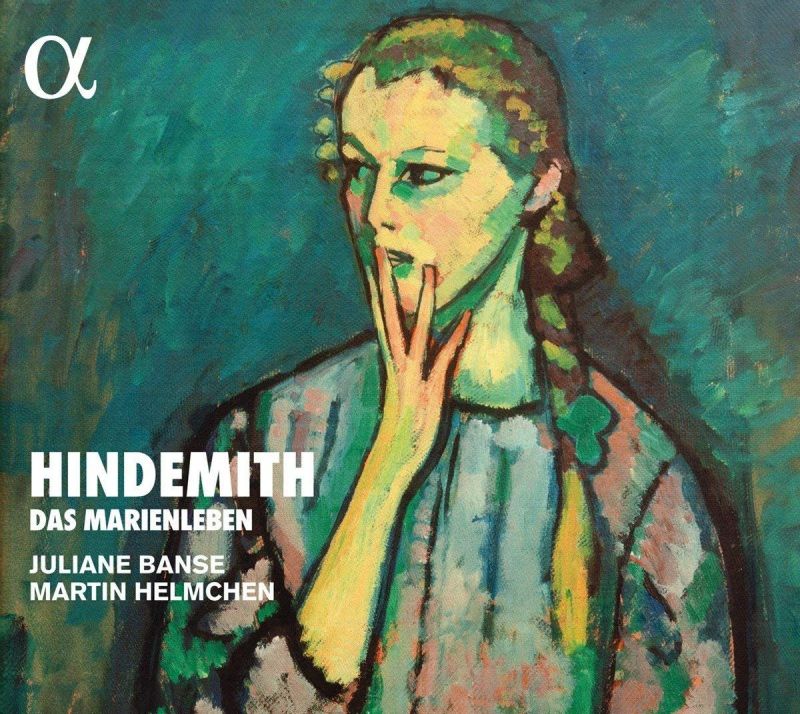HINDEMITH Marienleben (Juliane Banse)
View record and artist detailsRecord and Artist Details
Composer or Director: Paul Hindemith
Genre:
Vocal
Label: Alpha
Magazine Review Date: AW18
Media Format: CD or Download
Media Runtime: 71
Mastering:
DDD
Catalogue Number: ALPHA398

Tracks:
| Composition | Artist Credit |
|---|---|
| (Das) Marienleben |
Paul Hindemith, Composer
Juliane Banse, Soprano Martin Helmchen, Piano Paul Hindemith, Composer |
Author: Hugo Shirley
Gould’s essay on the cycle – the liner note for the original release, reprinted in The Glenn Gould Reader (Faber & Faber: 1987) – is unequivocal about the reasons, while also understanding as to why many opt for the revision. He draws attention to the challenging vocal line, for example, which he says ‘is conceived with something like a Beethovenian indifference’.
On this new recording, Juliane Banse negotiates that vocal line heroically, and she is fearless and unflinching throughout. The performance occasionally feels a little airless – an effect exacerbated by a balance that to my ears favours the soprano. Whether deliberately or not, Banse also avoids being over-demonstrative with Rilke’s words, although her pronunciation is, unsurprisingly, much better than that of the occasionally wayward Roslak with Gould. The soprano’s voice itself has a certain steely stridency, too. But these characteristics feel, if anything, appropriate for Hindemith’s uncompromising writing; and the intensity Banse brings to ‘Vor der Passion’, for example, is almost overwhelming.
She’s also alive to the shifts in mood, paring her voice and manner down for, say, the third song, ‘Mariä Verkündigung’, and its beautifully gentle final bars. But it’s here, too, that Martin Helmchen’s superb piano-playing offers its own contrast. Gould, more drily recorded, emphasises angularity; Helmchen, though never underplaying the more motoric figurations (in ‘Argwohn Josephs’ or ‘Von der Hochzeit zu Kana’), also taps into the music’s lyrical potential.
An extremely fine performance, then, and one that rightly reaches its apogee in the final triptych of songs reflecting on Mary’s death. Once you’ve heard Banse and Helmchen in the ecstatic final bars of ‘Vom Tode Maria III’, you’ll want, like me, to go back to the beginning and start all over again.
Discover the world's largest classical music catalogue with Presto Music.

Gramophone Digital Club
- Digital Edition
- Digital Archive
- Reviews Database
- Full website access
From £8.75 / month
Subscribe
Gramophone Full Club
- Print Edition
- Digital Edition
- Digital Archive
- Reviews Database
- Full website access
From £11.00 / month
Subscribe
If you are a library, university or other organisation that would be interested in an institutional subscription to Gramophone please click here for further information.




